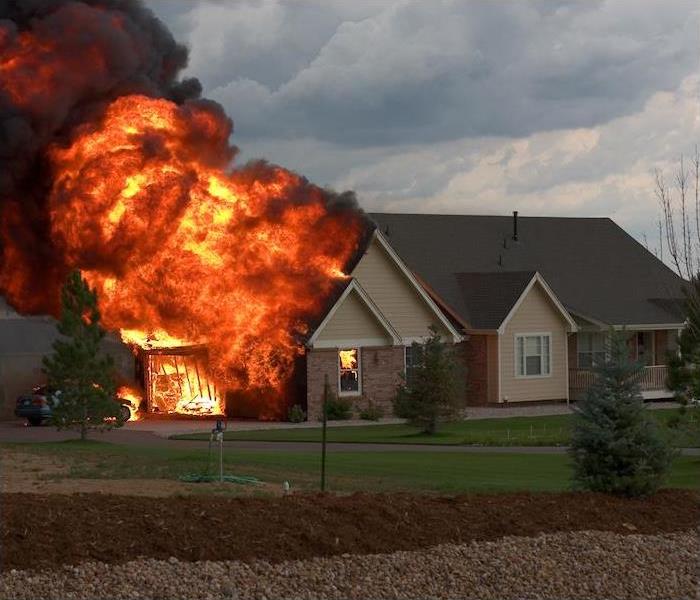Important Facts About House Fire Prevention | SERVPRO® of Reno Southwest
2/4/2020 (Permalink)
Here at SERVPRO of Reno Southwest like to help the community prevent any possible damage due to fire, water or mold. We at SERVPRO of Reno Southwest pride ourselves in customer service and our community and like offer advice on how to prevent possible damage.
Despite how dangerous and damaging house fires are, many people are unaware how frequently they occur and how best to prevent them. Having your home or business affected by a house fire is something we all hope to avoid, and these fire prevention facts will help ensure you are doing all you can to prevent it from happening to you.
House fires occur with shocking regularity—at almost three times every 60 seconds, according to the NFPA.
Since cooking is something that many do every day, it is not surprising that it is the leading cause of fires in residential buildings. However, that is not the only thing that can put you at risk for a house fire.
If you have ever seen a fire simulation, you know how quickly flames can spread. By preventing flames from growing in the beginning, one can lessen their risk that they will get out of control.
Here are the most important things to do to prevent house fires and keep your home safe:
Smoke alarm battery tests. Testing the batteries in your smoke alarm takes only a few seconds and will ensure that your unit is working. Most will have a test button to make this easier, and it is recommended to test every 30 days.
Dryer tray clearing. Because of the heat they generate, dryers can be a dangerous appliance. The lint that collects into the lint tray is highly combustible, and if it is built up, can easily catch flame. Make it a habit to clear the lint tray after each load.
Vigilance with open flames. Flames can spread surprisingly fast, even if the fire has previously been contained. Never leave cooking, candles or fireplaces unattended.
Cable checks. While phone chargers and TV cords are not often thought of as a fire hazard, the second they are frayed they become one. Cords should be checked often and replaced when worn.
Safe storage of household chemicals. Household cleaners and products in aerosol cans can be highly flammable—if there is any doubt, the label should indicate what precautions to take. Keep these away from heat sources to prevent creating an environment for combustion.
If your home has suffered damage from a house fire, give us a call. We are certified in fire and soot remediation, and here to help 24⁄7.





 24/7 Emergency Service
24/7 Emergency Service